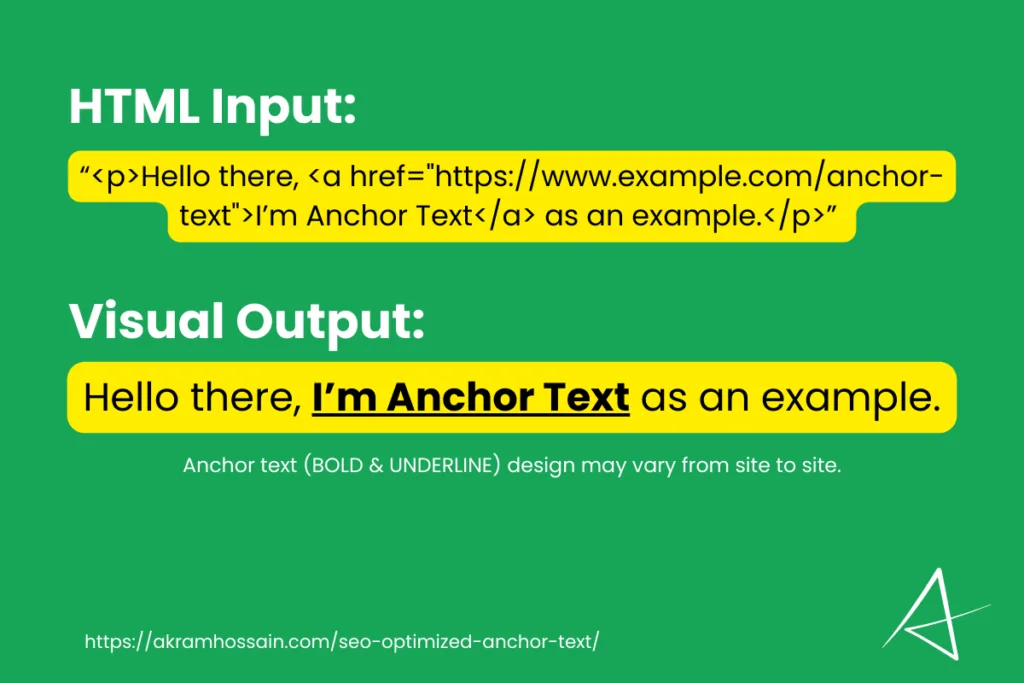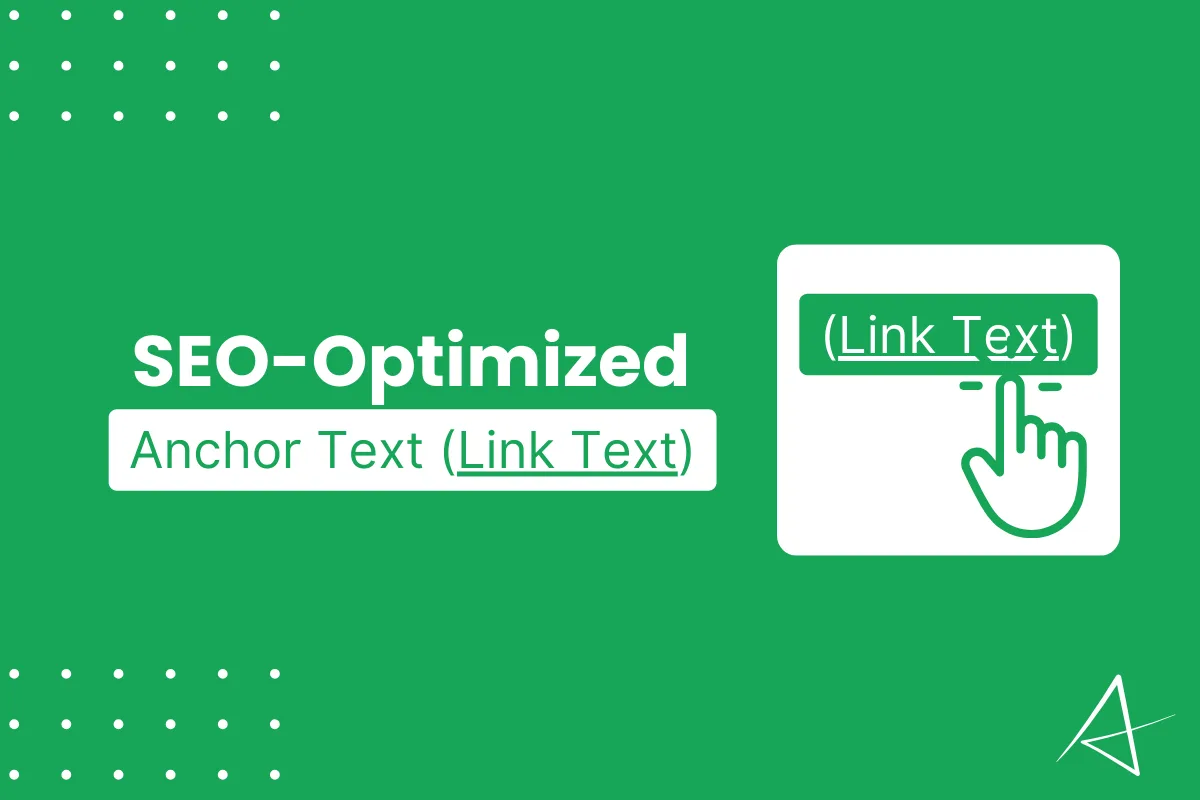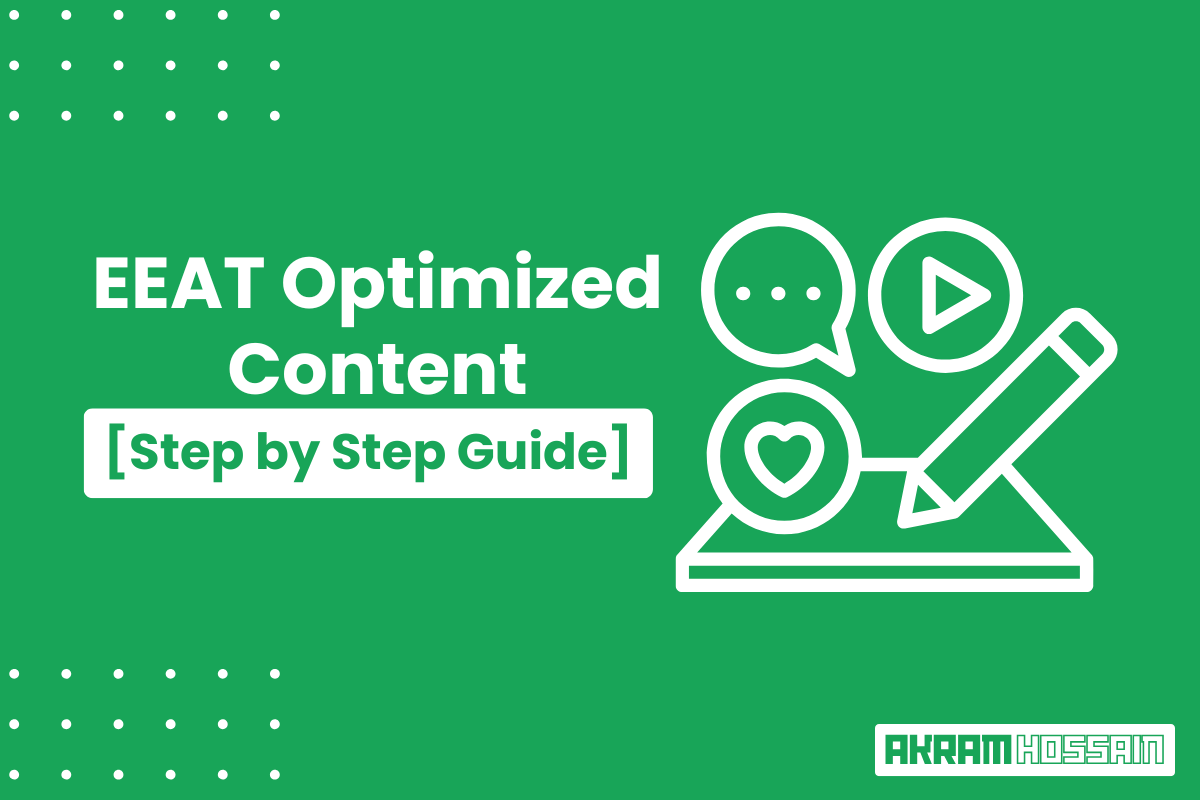I’m writing about Anchor Text; It looks like such a silly topic for once. But it’s vital to know about your SEO optimized anchor text.
Not all anchor text is important for SEO, but SEO-optimized anchor text may improve your on-page optimization.
Using inappropriate anchor text might pass the diverse signal to Google crawler, ultimately decreasing your webpage quality for search engines as well as users.
In this blog post, I will explain how you can choose the perfect anchor text that improves the SEO quality of your blog.
What Is Anchor Text?
Anchor text is a visual clickable text. In HTML, anchor text contains a URL, some text portion of a link, called a hyperlink, that redirects users to another webpage.
Here’s an HTML code snippet demonstrating anchor text:

“<p>Hello there, <a href=”https://www.example.com/anchor-text”>I’m Anchor Text</a> as an example.</p>”
The visual for this anchor text would be like this;
“Hello there, I’m Anchor Text as an example.”
When users click on the hyperlink text, they will be redirected to that particular page which is set as a hypertext reference (herf) attribute.
Let me explain the HTML code tags and attributes for your convenience;
- <a> tag: Defines the hyperlink element.
- href attribute: Specifies the destination URL for the link (https://www.example.com/anchor-text).
- “I’m Anchor Text” (bold and underlined): This is the anchor text, the clickable portion that users will see and interact with.
Underline and Bold anchor text isn’t always what you will see. It depends on site to site and their preferences of <a> tag. I’m using BOLD and UNDERLINE designs for anchor text on my site.
Well, here is the explanation of the anchor text. I hope you can understand the concept and know how its mechanism works.
Now, the question is, do we make any mistakes when using anchor text on our blogs or web pages?
– Yes, we do.
Most of us are careless about using proper anchor text, negatively impacting our SEO. To avoid this, using generic words that have no meaning for themselves is not recommended.
Here are the four rules for optimizing anchor text for your blog and your website as a whole.
Best Way to Anchor Text Placement
First, your link has to be crawlable by Google, and the link crawlable element tag is <a>. Before using <a> tag on your webpage, you should keep in mind some bad and good practices regarding link text or whatever you call anchor text.

Perfect Placement:
<a href=”https://example.com/products/man-shoes/”> man shoes </a>
Bad Placement (Empty Anchor Text):
<a href=”https://example.com/products/man-shoes/”></a>
You don’t always need to link up texts; images can be linked with <a> tag. Here is an example of the best practice of SEO-optimized anchor text for an image.
For instance, the image content tag is <img>.
Perfect Placement:
<a href=”https://example.com/product/man-shoe/add-to-cart/”><img src=”/man-shoe-feature-product.jpg” alt=”Man Shoe Feature Product”/></a>
Here, inside of <a> tag, <img> tag is added with scr (source) attribute for image file location, and alt attribute for what’s the image about for Google and search engines.
Best Practices for SEO Optimized Anchor Text
You just keep in mind some of these tips to make your anchor text perfect and optimized for users and search engines.
- Descriptive and Relevant:
Always be clear and concise with the text containing the link’s meaning. It should be relevant so that users can understand where they would go after clicking on the link.
Nevertheless, you should not use irrelevant words or URLs just to get clicks from users; doing so may negatively impact user experience as well as Google’s crawler.
- Keyword-Rich (Do not keyword stuffed):
Try to add a keyword on your anchor text naturally; it passes the signal to the search crawler, which is the actual relevant pages you have linked to another page. Naturally, this means you should stuff keywords anywhere, whether in anchor text or any sentence.
Keywords should be placed naturally everywhere that make sense for users as well as search engines.
- Avoid Generic Words:

What does this mean if I tell you, “Click Here”? Will you understand where you will redirect? No way, it means less, and most of the time, it’s bad practice for SEO, such words like Click Here, Read More, Learn More, and More.
Instead of these, you can use specific words like; “Learn about [Name]”, “Click to Purchase”, “Buy Now”, “Get Started” etc.
In short, the use of unclear texts should be reduced to proper and relevant ones.
- Add Call to Action:
Using appropriate words to click can convert your users into customers within a second, dramatically increasing the trigger. Add descriptive and specific CTA text like “Download the free eBook,” “Get it for Free,” “Shop Now,” and relevant texts.
Why Generic Words Negatively Impact SEO?
Generic words have the least meaning for themselves. When someone clicks on the “Click Here” text, the purpose of this word is unclear, and it does not provide any predicted meaning to users or Google.
Using <a> tag with texts should be meaningful for all users and search engines that ensure the link’s purpose.
In a pouring manner, I can’t say that you can’t use any generic words on your website; they can sometimes be used.
Like; If you have already completed a paragraph about a product, and you have completed the whole product review, then you can use “Learn more” or “Learn more [Product]”.
No one can say generic words are harmful to SEO, but Google does not recommend them. Google also sets the bad and good SEO practices for anchor text that everyone should follow.
The rest of the day, we all seek the first rank on Google SERP. So, we should obey the recommended anchor text.
Final Words
Writing SEO-optimized anchor text isn’t a big deal, you just keep in mind some topics about bad and good practices about linking.
Linking is important for on-page SEO, but it should be relevant and based on the topic you are writing about.
Keep anchor text descriptive for users and Google so that it can provide meaningful text. Avoid generic words that ultimately improve your on-page SEO and page authority.
So, anchor text is a vital part of on-page optimization. Always keep in mind that you have full power to optimize your on-page with internal and external linking. Proper anchor text may get the expected result.






